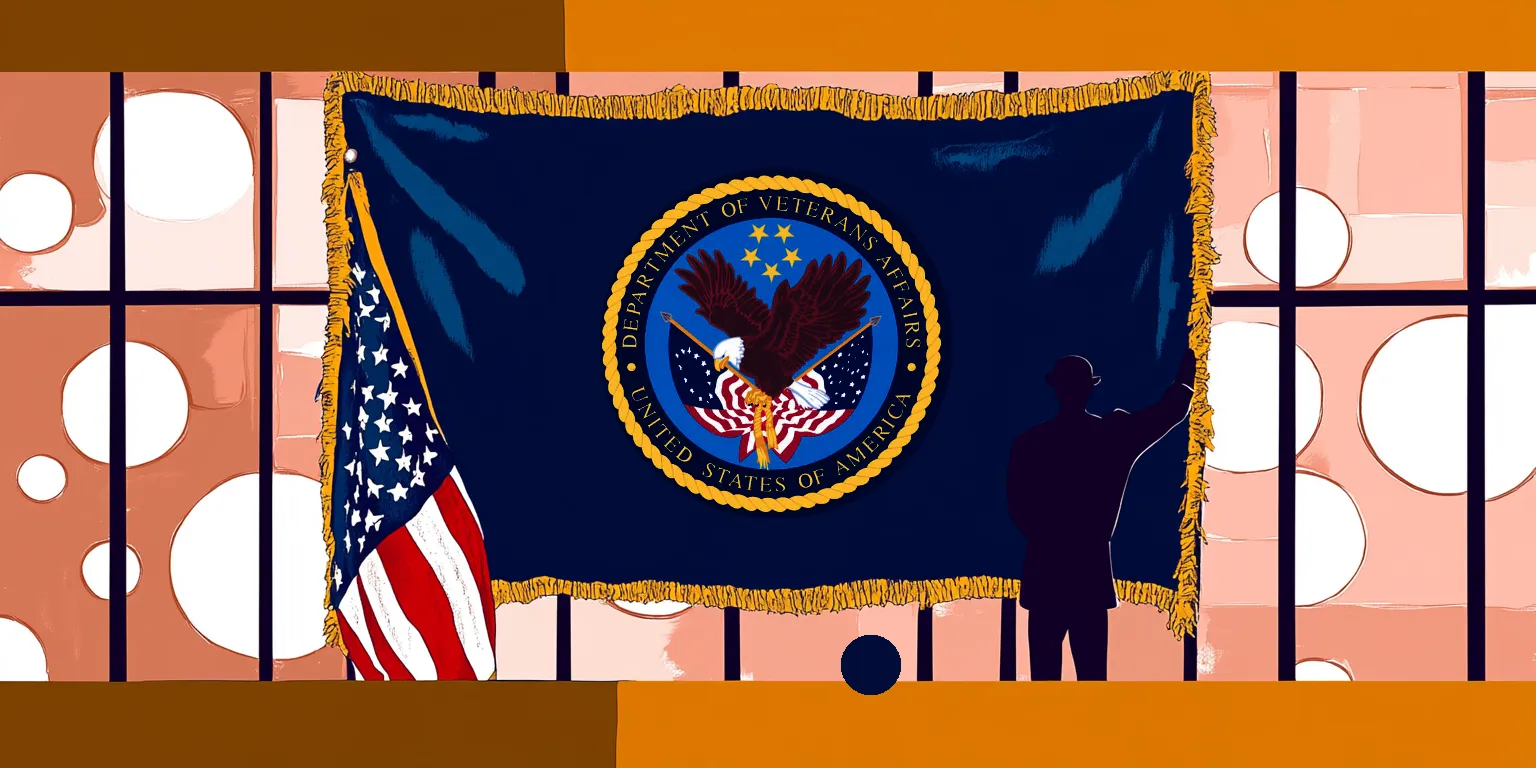In this week’s Psychedelic news roundup, we explore the continuing controversy around ICER’s draft report, which has called some data from the latest MAPS-sponsored MDMA-assisted therapy clinical trials into question. Other news includes two new studies, one examining MDMA therapy for veterans with PTSD and alcohol use disorder, as well as another looking at the long-term effects of LSD-assisted therapy (LAT), and more.
FDA Review of MDMA Therapy for PTSD: A Watershed Moment in Psychedelic Medicine

As reported by NBC News, the U.S. Food and Drug Administration (FDA) is poised to make a pivotal decision on the use of MDMA, commonly known as ecstasy, as a treatment for post-traumatic stress disorder (PTSD). This decision could significantly influence the future of psychedelic-assisted therapies and their acceptance in mainstream healthcare. If approved, MDMA therapy would mark a significant milestone in mental health treatment, potentially offering relief to millions of Americans suffering from PTSD. Conversely, a rejection could represent a substantial setback for the broader movement advocating for the therapeutic use of psychedelics.
However, emerging concerns about the integrity of the research underpinning MDMA’s therapeutic claims are casting shadows over this potentially historic approval. In March, a draft report released by the Institute for Clinical and Economic Review (ICER) raised “substantial concerns about the validity of the results” from key clinical trials. These concerns were further compounded by a citizen petition filed to the FDA, which cited possible misconduct and ethical violations in the research process. These allegations have prompted the FDA to schedule a public advisory committee meeting on August 11th this year to examine the claim’s validity. The gathering could be crucial in determining the drug’s fate.
The controversy primarily involves the Multidisciplinary Association for Psychedelic Studies (MAPS) and its affiliate Lykos Therapeutics, which have spearheaded the push for MDMA’s medical use. Despite the swirling doubts, researchers and clinicians directly involved in the MDMA trials have robustly defended their work, asserting the soundness of their findings and the rigor of their methods. They argue that the trials, which showed significantly higher rates of PTSD symptom relief in participants administered MDMA compared to those given a placebo, were conducted with the utmost professionalism and scientific integrity.
Keep Up with Uncensored Psychedelic Trends
Join our newsletter at Psychedelics Uncensored.
We respect and protect your privacy. By subscribing your info will be subject to our privacy policy . Unsubscribe easily at any time
However, the ICER report and subsequent discussions highlight a well-known issue within psychedelic research: the challenge of ensuring blind testing conditions. Many participants in the MDMA group correctly guessed their treatment status due to the distinctive effects of the drug, potentially skewing the efficacy results. Furthermore, there are concerns that strong biases among therapists and study participants might have influenced the trial outcomes, suggesting that some adverse effects were downplayed or not fully reported.(1)
Brown University Launches Groundbreaking MDMA Therapy Study for Veterans with Alcohol Use Disorder

Coming to us from Toronto10 News, researchers at Brown University’s Health Behavior Research Lab have initiated a new study focusing on the treatment of veterans suffering from post-traumatic stress disorder (PTSD) with alcohol use disorder. The study is led by Doctors Erica Eaton and Christy Capone, who are exploring the potential benefits of MDMA-assisted therapy—a treatment that combines pharmacology with psychotherapy.
This pioneering study at Brown is one of the first to specifically address the complex needs of veterans grappling with both PTSD and alcohol dependency. Throughout the study, participants will undergo a carefully structured therapy protocol. This includes three preparatory sessions without the drug to build trust and set therapeutic goals, followed by two eight-hour sessions where MDMA is administered in a controlled, therapeutic setting. The presence of two therapists ensures a supportive environment for participants to navigate the intense emotional responses that the drug might evoke.
As mentioned above, MDMA has shown significant promise in treating chronic PTSD and is currently under FDA review for potential approval as a therapeutic drug. Despite its classification as a Schedule I controlled substance, recent studies run by organizations like MAPS and Imperial College London continue to suggest that MDMA-assisted therapy could offer substantial relief for those with severe PTSD symptoms. However, Brown University’s new study is the first to explore its use in a population with both PTSD and alcohol use disorder.
Keep Up with Psychedelic Trends
Get uncensored psychedelic news, events, and updates. Join Psychedelics Uncensored!
We respect and protect your privacy. By subscribing your info will be subject to our privacy policy . Unsubscribe easily at any time
The study aims to recruit 12 veterans who will be closely monitored throughout the treatment process. In addition to the therapeutic sessions, participants will undergo MRI brain scans to study the neurological impacts of MDMA-assisted therapy. The hope is to demonstrate not only the safety and effectiveness of the treatment but also to provide insights into how it alters brain activity associated with PTSD and alcohol use disorder.(2)
Swiss Medical Society for Psycholytic Therapy Announces Long-Term Benefits of LSD in Treating Anxiety

Biospace details the Swiss Medical Society for Psycholytic Therapy’s (SÄPT) recently unveiled data from an LSD study, which indicated that reductions in anxiety symptoms were maintained up to two years after treatment. The findings, which were presented at the Society of Biological Psychiatry’s annual meeting in Austin, Texas, highlight the persistent efficacy of LSD in managing anxiety among adults.
During the 50-week placebo-controlled study conducted by the University Hospital Basel and SÄPT, participants demonstrated sustained remission rates. “These statistically significant, rapid, strong, and long-lasting reductions in anxiety, along with sustained responses across all secondary endpoints, are extremely encouraging,” remarked Dr. Friederike Holze of the University Hospital Basel, who presented the results.
The LSD study, a robust randomized, double-blind, placebo-controlled trial (a study where neither the researcher nor participants know which drug has been administered), initially enrolled 46 patients suffering from anxiety disorders. It aimed to explore the efficacy and safety of LSD, resulting in significant reductions in the State-Trait Anxiety Inventory–Global scores (a method of measuring the severity of anxiety symptoms) 16 weeks post-treatment, with the effects persisting throughout the 102-week follow-up period. Participants experienced a 32% reduction in symptoms at week 50 and 33% at week 102.
Interestingly, acute positive experiences during the treatment sessions were significantly correlated with long-term therapeutic outcomes. The study also reported that participants had a high tolerance for LSD, with only one serious adverse event related to treatment: the event, acute transient anxiety, and delusions during a session resolved positively. No instances of suicidal ideation, suicidal behavior, or intentional self-injury were recorded.(3)
VA Official Highlights Commitment to Psychedelic Therapy Research Amid FDA Review

The Marine Corps Times reports on a recent conference where VA Under Secretary Shereef Elnahal discussed the Department of Veterans Affairs‘ readiness to invest significantly in psychedelic therapy trials, particularly MDMA-assisted treatments for PTSD. This statement comes in anticipation of the aforementioned forthcoming decision by the FDA regarding the therapy’s approval.
However, approval is not assured and is pending an FDA review panel. Speaking with Jason Pyle, executive director of Healing Breakthrough, Elnahal highlighted the VA’s strategic role in refining and expanding psychedelic therapy to meet expected demands, particularly from veterans.
The VA plans to delve into key research areas to optimize treatment protocols, including the duration and staffing requirements for MDMA sessions and the potential for group therapy settings. Elnahal emphasized the necessity of these trials to prepare for a surge in demand and ensure treatments are medically and economically viable. Moreover, the VA is considering the extension of research to other psychedelic therapies, such as ibogaine and psilocybin, inspired by their promising mechanisms of action and potential mental health benefits.
As previously mentioned, Lykos Therapeutics (a subsidiary of MAPS) has already conducted a Phase III trial indicating significant benefits of MDMA-assisted therapy, with over 86% of participants showing clinically meaningful improvements. Elnahal referenced these findings to underscore the lower risk potential of psychedelics compared to existing PTSD treatments approved by the FDA. He committed to making these treatments accessible to veterans nationwide, aiming to overcome traditional disparities in distributing innovative therapies.
Elnahal believes that with MDMA and psilocybin both receiving significant designations from the FDA, the VA’s ongoing trials and preparations could soon transform the landscape of mental health treatment for veterans, potentially setting a precedent for equitable healthcare innovation.(4)
Sources

1. Stone, W. (2024, May 13). As the FDA evaluates ecstasy treatment for PTSD, questions mount about the evidence. NPR; NPR. https://www.npr.org/sections/health-shots/2024/05/13/1250580932/ecstasy-mdma-ptsd-fda-approval
2. NEWS, B. M., NBC 10. (2024, May 13). Brown University study explores MDMA therapy for veterans with PTSD and alcohol issues. WJAR. https://turnto10.com/features/health-landing-page/brown-university-study-explores-mdma-therapy-for-veterans-ptsd-alcohol-issues-therapists-va-substance-use-disorders-may-13-2024
3. Swiss Medical Society for Psycholytic Therapy (SÄPT) Announces Data Demonstrating Reductions in Anxiety that Persist Through Two Years After Treatment with LSD. (n.d.). BioSpace. Retrieved May 15, 2024, from https://www.biospace.com/article/releases/swiss-medical-society-for-psycholytic-therapy-sapt-announces-data-demonstrating-reductions-in-anxiety-that-persist-through-two-years-after-treatment-with-lsd/
4. Perez, Z. (2024, May 14). Psychedelic therapy data “speaks for itself,” VA official says. Marine Corps Times. https://www.marinecorpstimes.com/news/your-military/2024/05/14/psychedelic-therapy-data-speaks-for-itself-va-official-says/
This material is not intended as a replacement or substitute for any legal or medical advice. Always consult a medical professional about your health needs. Psychedelics are widely illegal in the United States, and readers should always be informed about local, state, and federal regulations regarding psychedelics or other drugs.

 David Connell
David Connell





 Ross Dillon
Ross Dillon 
